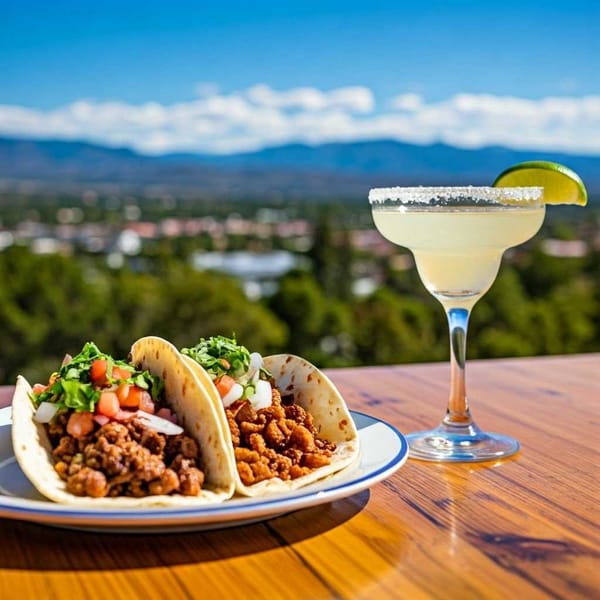Argentina approves transgenic drought-resistant wheat
Argentina approved its first transgenic wheat, which contains a sunflower gene to make it more resistant to drought, but its commercialization will depend on Brazil.

Argentina approved its first transgenic wheat, which contains a sunflower gene to make it more resistant to drought, but its commercialization will depend on the approval of Brazil, which buys almost 50 percent of local production and is its main Mercosur partner.
Various production and business sectors have expressed concern that importing countries could refuse to buy genetically modified wheat, thus harming the grain trade. Therefore, Brazil's authorization will be decisive in securing the international market.
It is not the first time that Argentina leaves the final decision of a genetically modified product in the hands of another government: the same happens with a variety of soybeans against drought, developed by the same team as the transgenic wheat, which has been pending approval by the government of China for five years.
In the case of wheat, the sources consulted by SciDev.Net do not know in what time frame and what Brazilian officials will decide, but they hope it will be before the 2021 campaign.
However, the private company that developed it, Bioceres, announced that it is in the process of getting approval to export it to the United States, Uruguay, Paraguay, and Bolivia. "The Company is also preparing presentations for Australia and Russia, as well as other countries in Asia and Africa," was informed during the virtual launch of the variety.
Wheat HB4 has a sunflower gene and is resistant to glufosinate ammonium. Its productivity in trials was 20 percent higher on average than conventional wheat. But its commercialization will only be allowed if Brazil also approves it.
The transgenic wheat variant, called HB4, was produced by an alliance between the National Council of Scientific and Technical Research (Conicet) and Bioceres, after more than 15 years of tests.
"We sought to isolate drought regulatory genes and tested with the sunflower, which is quite resistant until we found them after many tests made first in other plants (of the genus Arabidopsis)," Raquel Chan, director of the Coastal Agrobiotechnology Institute (Conicet/Universidad del Litoral) and leader of the group that developed the modified wheat, told SciDev.Net.
As part of the tests, the new wheat was found to have 20 percent higher average productivity compared to conventional wheat, ranging from 90 to 1 percent, depending on the area and other random climatic factors. It is also resistant to the herbicide glufosinate-ammonium.
For his part, Argentina's Minister of Science, Roberto Salvarezza, in a telephone conversation with SciDev.Net, said that having diverse varieties "can be an important tool" for the local economy.
"We are aiming for increased production at a time when Argentina is suffering a strong cycle of drought due to climate change, where hundreds of thousands of tonnes of production are lost," he said.
"Herbicides are not a good thing, but nothing much better was invented. This technology uses less water, and this is also taking care of the environment". - Raquel Chan, Director of the Institute of Agrobiotechnology of the Coast, Argentina
The HB4 wheat, which is still in confinement, had surpassed the technical instances at the beginning of last year, but given the controversy that arose, the previous Argentine government did not decide to approve it, something that happened now with the administration of Alberto Fernández, who took office in December 2019.
But its approval is not without its critics from environmentalists and researchers in ecology and the health consequences of agrochemicals. A sector of the scientific community began collecting signatures in an open letter asking that the approval be rescinded. In a few hours, it added up to more than 200.
"Glufosinate ammonium is a product categorized as highly dangerous, because among other things it alters reproduction, just like glyphosate," said Javier Souza Casadinho, regional coordinator of the Pesticide Action Network and its alternatives for Latin America, in a telephone dialogue with SciDev.Net.
He clarified that although HB4 wheat is resistant to this herbicide, its permanence in the environment can generate several types of problems. The new variety can advance over natural systems and also over other crops, such as fruits. "Transgenics have not solved problems, they never ended hunger as promised, but rather generated others," Souza Casadinho points out.
"Herbicides are not a good thing, but nothing much better was invented. This technology uses less water, and this is also caring for the environment," defends Chan, who has been doing this research since the 1990s.
"And this is a sunflower gene, another ancestral plant. It's not a rhinoceros or toad gene, which wouldn't be a problem either, but it's a gene from another edible plant," he adds.
Argentina has approximately 17 million hectares destined for soybean and around 7 million for wheat, according to information from the Rosario Stock Exchange.
"Whenever there is a disruptive technology, fears are generated. Every technology has its risks, we believe that we have to bet. Because in wheat Argentina is not a world leader and it can become one", concludes Salvarezza.
Source: SciDev.net




